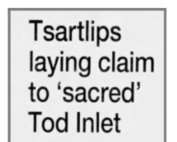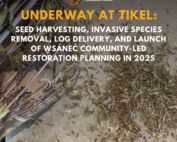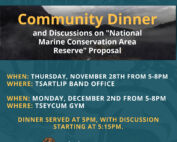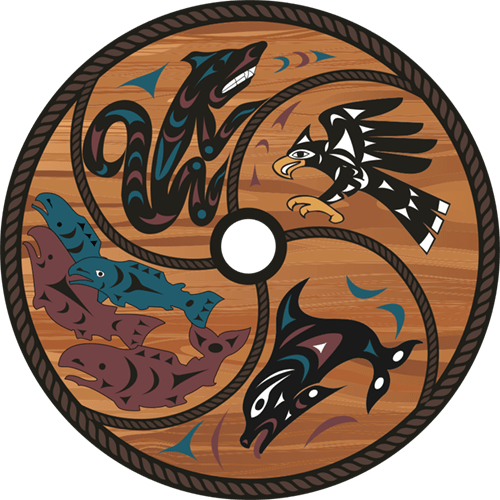The WLC is pleased to announce work on a dedicated referrals office will begin this year.
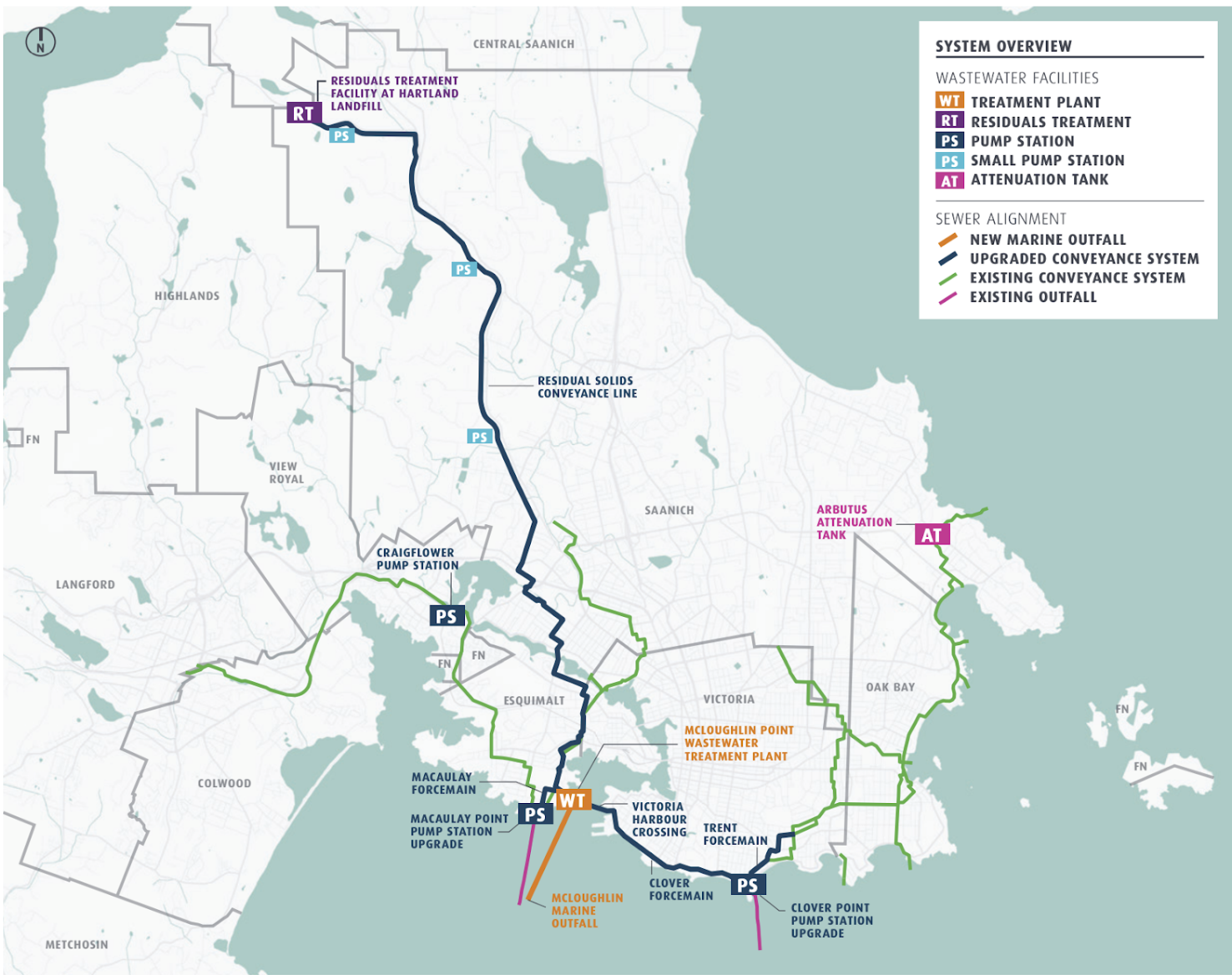
Shown above: a map of the Wastewater Treatment Project ending at the Hartland Residuals Treatment Facility in W̱SÁNEĆ territory
What is known as referrals are formal requests for consultation with outside parties on work within the territory. Referrals are received in accordance with the duty to consult, a legal obligation that must be fulfilled by the government prior to taking actions or making decisions that may have consequences for the rights of Indigenous peoples in Canada.
Some referrals pertain to large projects such as pipelines, which require incredible resources to properly evaluate and respond to. In these cases, multi-year archeological and environmental assessments, as well as input and analysis from cultural workers and negotiators, are all required to formulate an appropriate response.
Thorough and accurate responses to referrals are critical to ensure the protection of treaty rights and to preserve the future use of W̱SÁNEĆ resources. In addition, responses to referrals are used to negotiate and secure appropriate compensation and accommodation for these impactful projects.
The volume of referrals received by the W̱SÁNEĆ First Nations is significant. Further, the government requests responses within 30 days of receiving the referral, which is not enough time to evaluate and respond properly. Since the beginning of the Pandemic, referrals have not slowed down as industrial projects are deemed “essential services. This has created an unmanageable situation for many Indigenous communities as they also grapple with a state of emergency.
For the WLC, the appropriate management of referrals also requires coordination between staff and leadership at the Tsartlip, Tsawout, and Tseycum First Nations which adds another layer of complexity to the already labour-intensive process. As such, the WLC is working to open a dedicated referrals office modelled after the framework utilized by other Nations like the Squamish, Stó:lō, and Musqueam.
“This new office will help to execute a coordinated policy to support the individual nations, streamline the referrals process and begin collecting payment from those who want to work in our territory for each referral, or consultation request. The funds collected will then offset the costs of running the office.” Gord Elliott, the WLC’s Director of Operations shares. “We are creating our own decision-making process. Something that works for us, something we can own and that brings our community together.”
Internally, the referrals process consists of consultation with community specialists and knowledge holders. In order to make decisions, the WLC requests advice and feedback from several sub-committees including Elders, language experts, environmental specialists and cultural workers.
In addition to consulting with knowledge keepers and W̱SÁNEĆ experts, decisions are made by consulting W̱SÁNEĆ reference materials that accurately reflects the W̱SÁNEĆ worldview, culture and history. The WLC has begun to collect maps of W̱SÁNEĆ traditional use and traditional knowledge throughout W̱SÁNEĆ territory.
“Maps aren’t inherently colonial, but the way they have been used is to divide us and erase us. The way we’re doing it is drawing a line and saying this is how we see it, this is where we are responsible, and it may be controversial but we need to have our voices heard.” says Shauna Johnson, the WLC’s Marine Use Planner.
She continues, “The creation of this map will also serve as a reminder, we are all mappers and planners. We are all skilled and knowledgeable. We hold the information in our bodies, hearts and minds. Just imagine what it would take to bring a longhouse across the Salish sea. We would have to be superior meteorologists, to know the current and the weather, the moon phases. We would need planks for the longhouse, logs for the canoes. We would have to remember where that village is. We would have to engineer the canoe so it’s balanced, and then sort out how to balance two canoes, plus the longhouse and our people and our supplies, and carry all of that together from Saanich to the San Juan Islands. Then once we were there, constructing homes without nails, that have open fires inside, ensuring there’s a balance between enough heat and fresh air to breathe, facing the doors so the wind will blow out the smoke and dust.”
ŚW̱,XELOSELWET, Tiffany Joseph, the WLC’s GIS Planning Coordinator who will be working on the map with Shauna Johnson agrees: “The creation of this map is retelling a telling. Because of our oral history, we have a deep understanding of our resilience. We are known as the people who grew themselves up.”
To stay up to date on the referrals office and the mapping project, please sign up for our newsletter.
RECENT POSTS
How are we doing?
“This new office will help to execute a coordinated policy to support the individual nations, streamline the referrals process and begin collecting payment from those who want to work in our territory for each referral, or consultation request. The funds collected will then offset the costs of running the office.” Gord Elliott, the WLC’s Director of Operations shares. “We are creating our own decision-making process. Something that works for us, something we can own and that brings our community together.”


